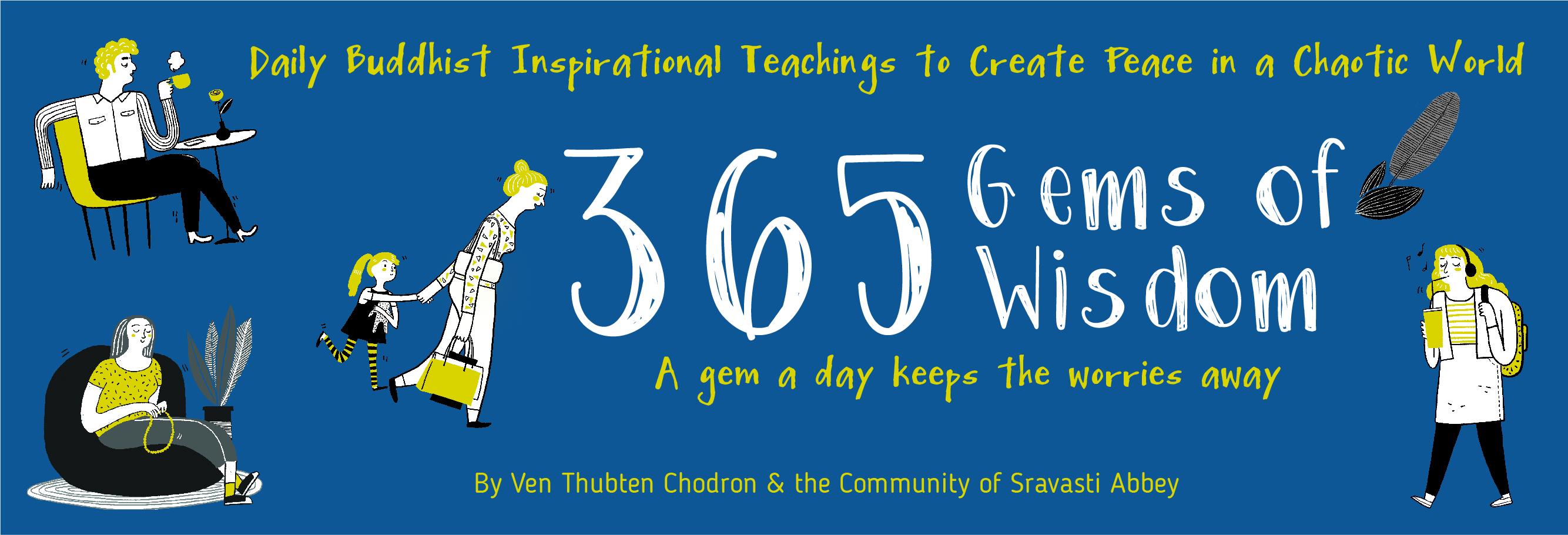February 14 : Practising Patience
To Bodhisattvas who want a wealth of virtue, those who harm are like a precious treasure. Therefore, towards all cultivate patience without hostility. This is the practice of Bodhisattvas.
Bodhisattvas are a bit different from us. When we meet a person who is obnoxious or harms us, someone who is rude, sarcastic or lazy, who criticises us, interferes with our happiness, or blames us for things that we did not do, beats us up, disappoints us, or does anything else we do not like, we want to get as far away from the person as possible. We are upset, we are angry, we are offended, we are resentful, and we want to harm the person in some way. We blame the other person for our hostility, but it is due to the anger and the seed of anger in us. As long as we have those, we are going to find somebody to be upset with no matter what others do.
If Buddhas surrounded us, we would misinterpret their actions and project something onto them just to replay the same habitual emotional patterns of feeling hurt and wanting to harm. For Bodhisattvas — whose primary focus is to free themselves from samsara and eliminate the obscurations that prevent them from seeing all sentient beings as wanting happiness and not wanting to suffer — people who harm them are like precious treasures. Bodhisattvas realise that they need to create a wealth of virtue to attain full Buddhahood, and one of the best ways to create merit is by practising patience. We cannot practise with the people that we like or the people who are kind to us, so those we perceive as being harmful to us are the most valuable for our Dharma practice. Seeing them as precious treasures will enable us to let go of our hostility and hurt and develop love, compassion, and tolerance for them. Practising the far-reaching attitude of patience is what will take us across this ocean of samsara, so we need to prioritise it rather than take revenge or put the people who harm us in their place.
We should try and understand the disadvantages of anger and the benefits of cherishing others. Anger has two functions — it prevents our good karma from ripening while creating a lot of negative karma. Looking deeply at anger, we can see how it makes us unhappy now and in the future by bringing horrible rebirths and preventing our good karma from ripening. When we notice ourselves getting angry or spiteful, instead of assuming that the emotion is right and there is nothing we can do besides suppressing it, we can call our mind back to a reasonable state where we ask ourselves, “Does this benefit me?” If we do this enough, we will begin to get a gut feeling of how anger does not help us and is in fact our enemy.
“365 Gems of Wisdom” First Volume (January — March) e-book is out now!

